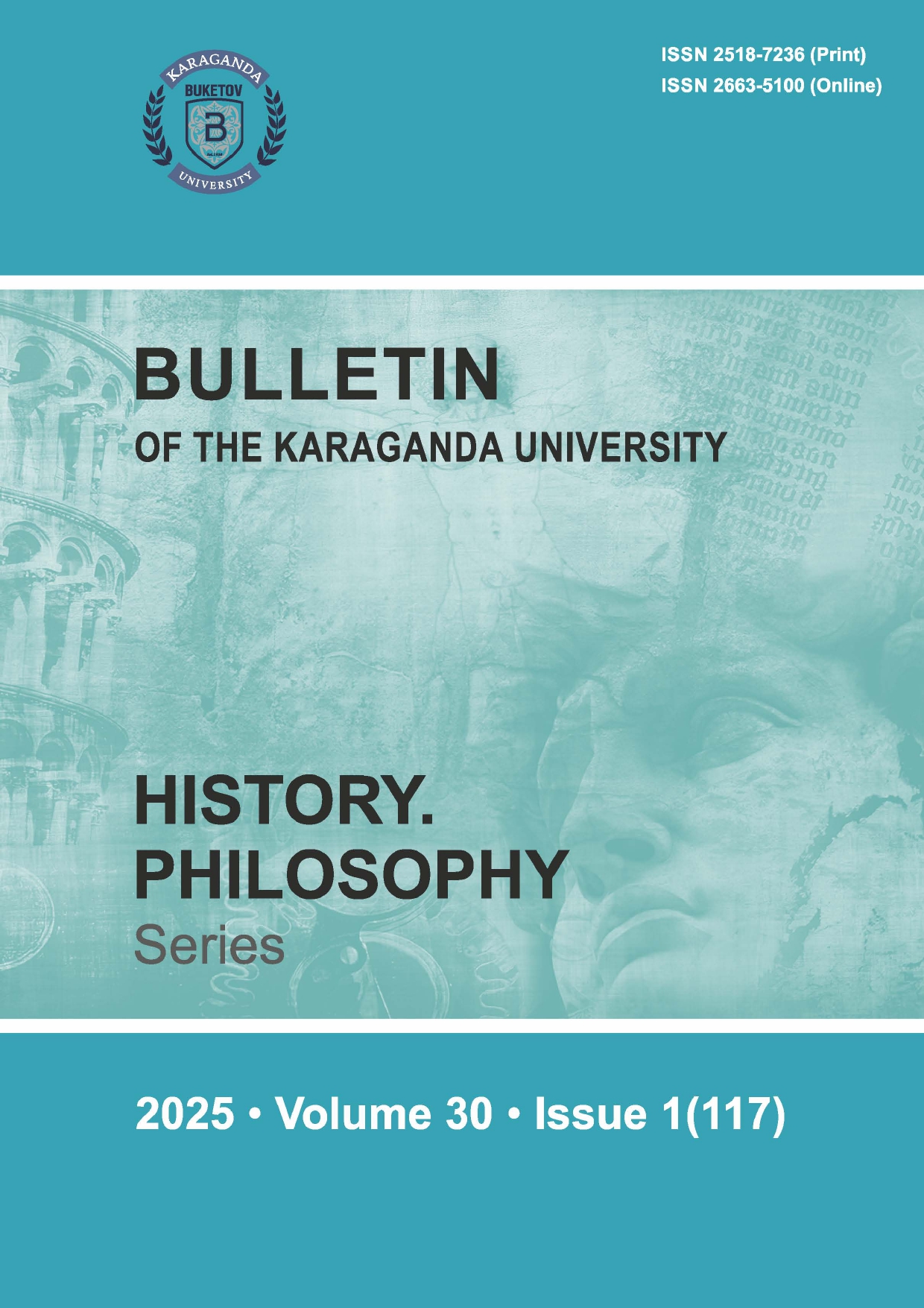Soviet historians and the transformation of national history during the last decade of the Stalin erа
DOI:
https://doi.org/10.31489/2025hph1/240-247Keywords:
History of Kazakhstan, historiography, soviet period, periodization, historical science, the theory of “lesser evil”, colonial policy, great Russian chauvinism, friendship of nations, ideologyAbstract
The article discusses the revision of national history by Soviet historians in the last years of the Stalin era. The authors examine the complex and sometimes contradictory processes of shaping national history during the Soviet period. They also analyze the constant ideological changes in Soviet historiography, debates about fairness towards different peoples, and the search for historical interpretations that aligned with Soviet national policy under the idea of the “lesser evil”. The study highlights discussions between supporters of the class-based approach and those promoting Soviet patriotism within the Institute of History of the USSR
Academy of Sciences. The article explores the influence of the Marxist-Leninist method on the revision of national history, as well as the strengthening of ideological restrictions and censorship. It describes the ideological, political, and methodological changes that took place in Soviet historical studies. The authors conclude that only recently significant conclusions have been drawn about the study of national history in the Soviet Union. They emphasize that true academic freedom and a full understanding of national history became
possible only after independence. As a result, the study highlights the complexity of Soviet historical science and ideology, as well as the impact of behind-the-scenes decisions on historians’ work




